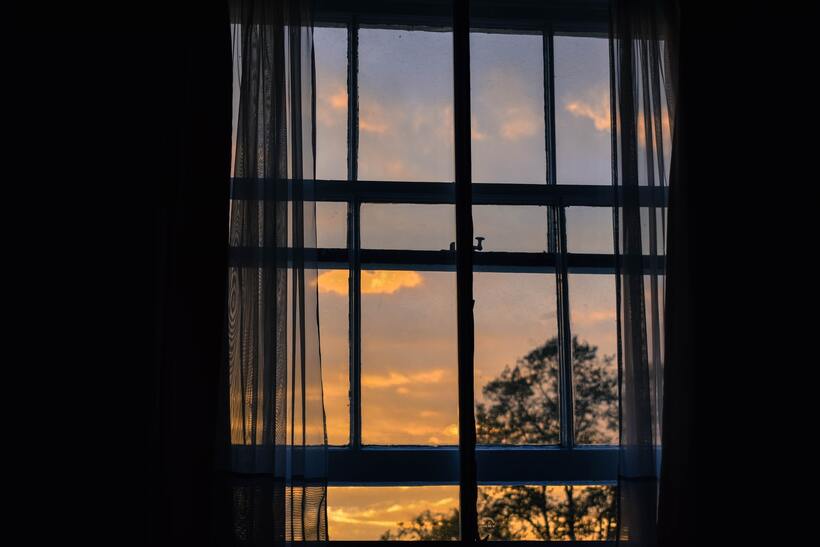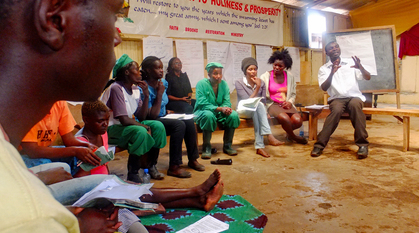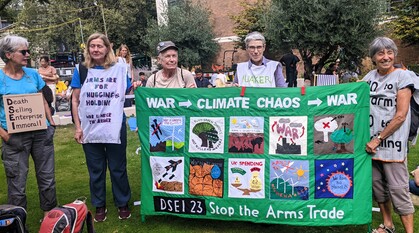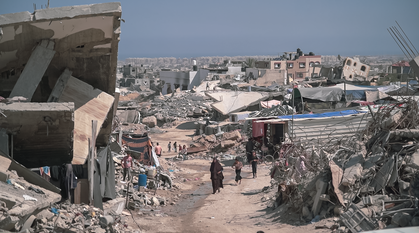How Quakers in Devon secured a home for people seeking refuge
Philip Wood speaks to Exmouth Quakers about how they were able to support people in their local community.

People travelling to the UK today in search of sanctuary are making journeys that take them across land and sea, and are too often greeted with hostility and violence.
This continues to be the sad reality for many people seeking sanctuary from war, climate breakdown, exploitation and poverty – all too often a legacy of colonialism in their countries of origin. Quakers involved in countering the UK government's own 'hostile environment' policies know that it is essential to provide refugees with safe homes where they can live and recover.
A Quaker network of nearly 100 Sanctuary Meetings are working for migrant and racial justice. Many are actively transforming properties in their communities into safe homes for people who are seeking the right to remain in the UK.
Exmouth Meeting in Devon have been on this path in recent years, and offer their story in the hope that it may inspire others. Richard Watts, Treasurer of Exmouth Quaker Meeting, spoke to us about how their project came about.
Legacies: a starting point
Ten years ago, Exmouth Meeting were left two generous legacies by Quakers, with the suggestion that this be used to buy their own meeting house.
However, Exmouth Quakers decided not to buy their own meeting house. Exmouth, a town of 34,000, has 28 churches – as Richard jokingly puts it, "perhaps 20 too many".
He argues that there are so many under-used and badly-maintained buildings. "They're used for a few hours a week and that's it. Exmouth Meeting didn't really want to add to that."
Richard was part of the small group that was tasked with discerning what might be done with the money. He had always had an affinity for housing, having worked as a surveyor and spent the 1970s running a small housing association that had been set up by churches.
"It was quite magical," he says, to be sat and trying to answer the particular question: 'what does love demand of you?' The group knew that they wanted to honour the memories of the Friends who left legacies. Their answer to the question was simply 'love your neighbour'.
They discussed what this might involve, practically speaking, and how they could make the biggest difference.
Inspiration strikes
The meeting were in touch with local charity, Refugee Support Devon. The manager asked them, "do you know anyone who would lease us a property? That's the real bottleneck."
Their clients are not allowed to access social housing. They needed to find landlords who would lease property to the local housing authority.
Exmouth Quakers were struck with an idea: why not invest our money in a house? They bought a property that could be let out to refugees through the council scheme.
Technically, as landlords, they could have just sat back and done little else from that point. But Exmouth Meeting wanted to act in solidarity with refugee families, adding a human side to what might otherwise be a purely transactional relationship.
Hurdles overcome
Then Covid-19 hit. The government Refugee Resettlement Scheme was paused. Exmouth Quakers were unable to continue with their plans due to the uncertainty of when the scheme would restart. The house stood empty, and Richard had to visit it every week to check on it.
Late in 2020, however, they found a solution with East Devon District Council, and they've now signed a lease. It allows the property to be used to temporarily re-house families who would otherwise be in bed-and-breakfast accommodation. The property must be used for housing refugees again within six months of the Refugee Resettlement Scheme restarting.
Richard is delighted, because not only is the future of the house for refugees secured, but it will also be put to good use in the meantime by taking people out of bed-and-breakfast accommodation, which is so detrimental to family life.
A catalyst for care
Richard believes that this work is a way that Exmouth Quakers can get out into the community and let their lives speak. It has enabled them to be a catalyst for care and compassion within their community.
Richard says "people join and are inspired by not what you say or where you are worshipping, but because of what you are doing."
One of the things Exmouth Friends found really empowering is how freely they could act. They didn't wait for the government to make a top-down change. Their action was a response to the existing needs of their local community – a grassroots initiative that others can replicate. All it took was a small group of people taking stock of the resources available to them, and asking themselves, 'what can we do?'


